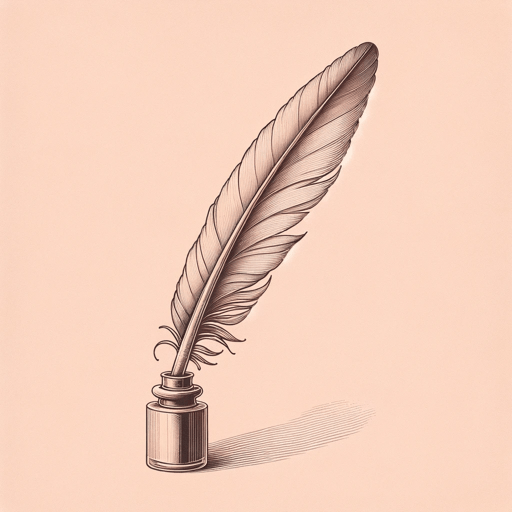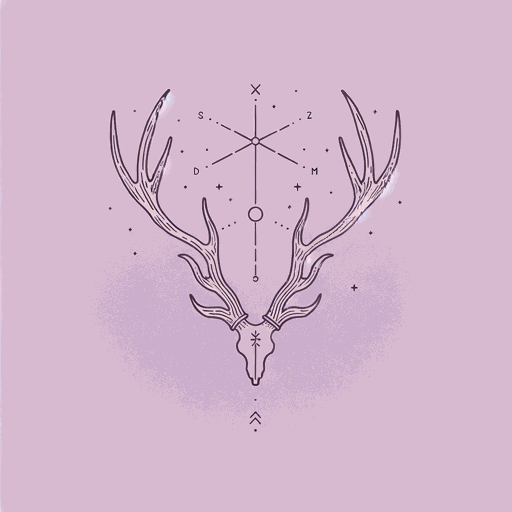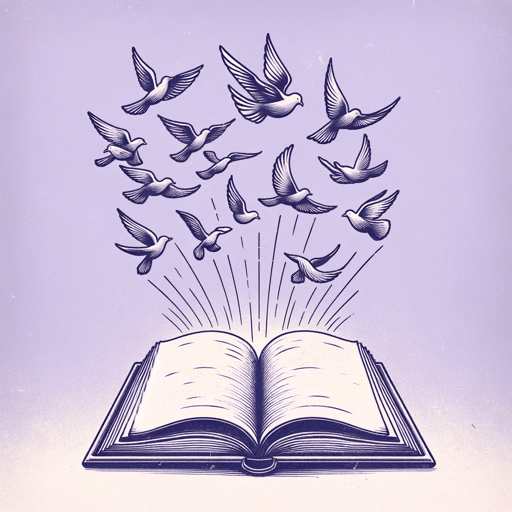77 pages • 2 hours read
Olga TokarczukThe Books of Jacob
Fiction | Novel | Adult | Published in 2014A modern alternative to SparkNotes and CliffsNotes, SuperSummary offers high-quality Study Guides with detailed chapter summaries and analysis of major themes, characters, and more.
Summary and Study Guide
Overview
The Books of Jacob is a 2014 novel by Polish author Olga Tokarczuk. The novel tells the fictionalized story of a real Polish Jewish man named Jacob Frank, who claimed to be the Messiah in the 1800s. The many literary prizes won by Tokarczuk include the Polish Nike Award, the Man Booker International Prize, and the 2018 Nobel Prize in Literature. The Books of Jacob won the Prix Laure Bataillon (2019) and the Jan Michalski Prize (2018), amongst other honors.
This guide uses the print version of the 2021 Fitzcarraldo edition, translated by Jennifer Croft. This guide also follows the author’s stylistic choice of numbering the pages in reverse, beginning on page 892 and ending on page 27. This decision is intended to echo the pagination and reading styles of texts written in Hebrew.
Content Warning: The source material occasionally deals with issues such as sexual violence, violence, and religious persecution.
Plot Summary
In the Polish town of Rohatyn in 1752, a Christian priest and author named Father Chmielowski visits a Rabbi named Elisha Shorr to borrow a book to aid his composition of an encyclopedia named New Athens. Later, Chmielowski meets Elzbieta Druzbacka, who is traveling with a noblewoman named Katarzyna Kossakowska. Chmielowski and Druzbacka begin a decades-long correspondence in which they discuss the nuances of writing and language, as well as their personal lives.
Asher Rubin is a Jewish doctor who studied in Italy and now lives in Rohatyn. He considers himself separate from the other Jewish people in the town. During his frequent visits to the Shorr house, he notices that they are preparing for a wedding. An elderly woman named Yente is brought to the wedding but falls sick. Asher believes that she may die close to the date of the wedding. Elisha makes a mystical charm to delay her death long enough so as not to ruin the celebrations. Yente eats the paper on which the charm is written. She sinks into a deep coma-like sleep and has an out-of-body experience. Her family does not know what to do with her, so they place her body in a cave. From her out-of-body perspective, Yente views the events of the novel and beyond. Meanwhile, Bishop Soltyk builds up secret gambling debts.
A young Jewish man named Nahman wants to be the author of a book about Jacob. He writes about how he met Jacob in the context of a history of Messianic Jewish preachers such as Sabbatai Tzvi. He meets Jacob through Elisha Shorr and brings Jacob to Rohatyn. Their initial meetings take place against the backdrop of many periodic outbursts of intense violence against Jewish people. As Jacob begins to present himself as a Messiah, Nahman dedicates himself to recording Jacob’s life even though Jacob tells him not to do so.
Jacob and his new retinue of followers travel across borders in Eastern Europe and the Ottoman Empire. They search for somewhere they can practice their religion in peace. When they return to Poland, they petition Bishop Dembowski for help. By converting to Christianity, Jacob’s followers hope that they will be allowed to settle in Poland. The bishop is keen to win favor with the church for mass-converting so many Jewish people, so he agrees to hold a disputation at which their status will be settled. Dembowski dies and Bishop Soltyk is chosen to replace him.
Jacob and his followers successfully argue their case and are converted to Christianity. However, shortly after the conversion, an investigation takes place, and Jacob and his followers are deemed to be heretics by the church. Jacob is imprisoned in a monastery, where he must remain for 13 years. While he is imprisoned, some of his followers lose faith but he manages to reconvene them and grow his congregation. When Russia invades Poland, Jacob is eventually freed.
After being released, Jacob travels to Brunn to meet his cousins. They help him reestablish himself and his community. He takes his beautiful daughter, Eva, and tries to petition the emperor for help in establishing a small community for his followers. Though the emperor is initially interested in Eva, he does not give Jacob what he wants. At the same time, Jacob’s followers become resentful of Jacob’s lavish lifestyle and the hard work they must do to pay for it. Jacob grows older and his health begins to fail him.
After the emperor loses interest in Eva, Jacob tries his best to win the emperor’s patronage but fails miserably. Soon, his household is drowning in debt, and he must sell many of his lavish possessions to pay his vastly-diminished staff. He dies as an impoverished man, leaving behind his debts for Eva to manage. Some of his followers believe that he lives on through Eva but his influence rapidly dwindles.
From her outside perspective, Yente observes the way in which the memory of Jacob is lost to time. His skull becomes just another historic artifact which is used to justify antisemitism. Many of the characters who wrote extensively throughout the novel have their writings lost. Yente, meanwhile, remains in the cave and slowly turns into a living crystal.
Related Titles
By Olga Tokarczuk
Featured Collections
Challenging Authority
View Collection
Historical Fiction
View Collection
National Book Awards Winners & Finalists
View Collection
Nobel Laureates in Literature
View Collection
Popular Book Club Picks
View Collection
Power
View Collection
Religion & Spirituality
View Collection
The Best of "Best Book" Lists
View Collection
The Booker Prizes Awardees & Honorees
View Collection
Truth & Lies
View Collection



